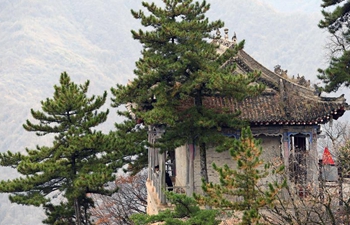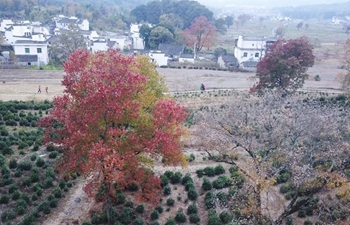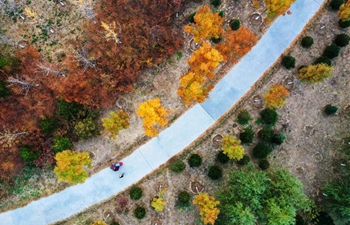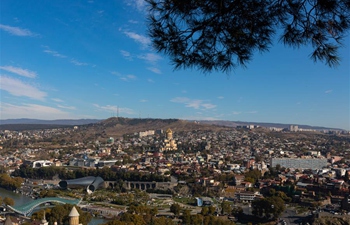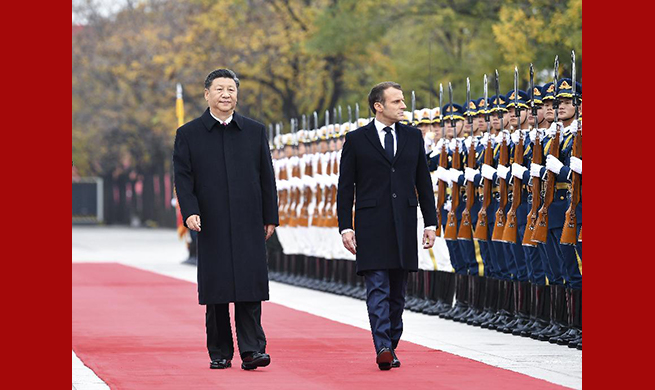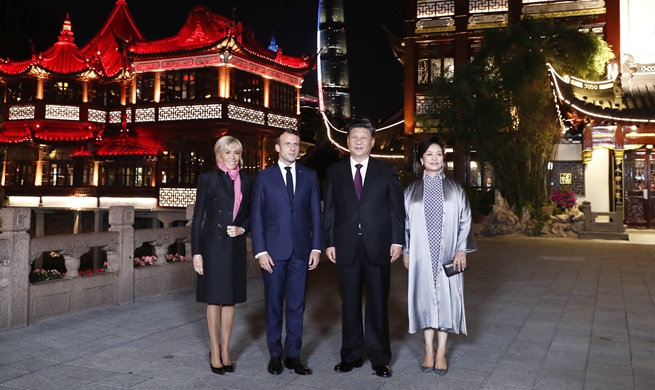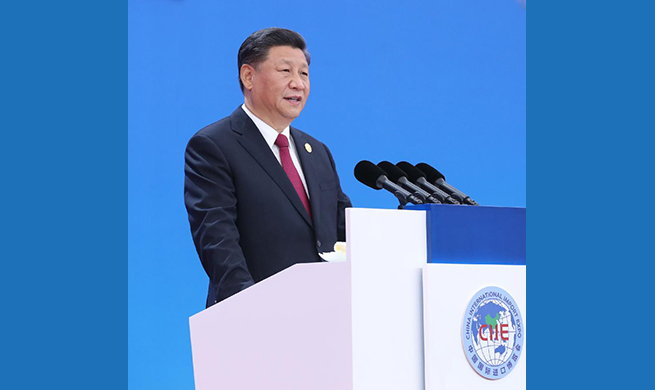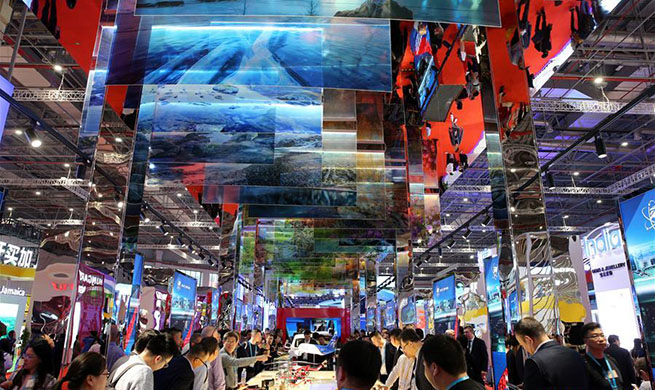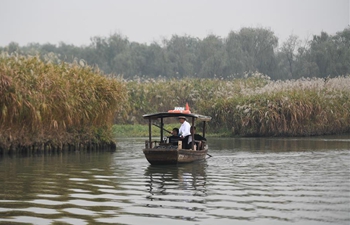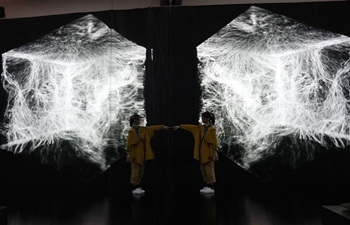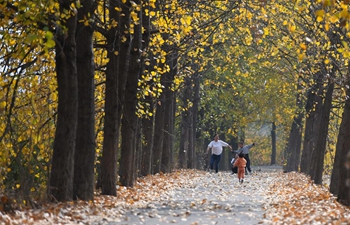by Dana Halawi
BEIRUT, Nov. 7 (Xinhua) -- "The Hub" is one of the main events launched in Lebanon's capital Beirut's downtown after the beginning of the nationwide protests on Oct. 17 against the government's policies and corruption.
Hundreds of people, including academics, doctors, engineers, poets, writers, journalists, and artists, go to "the Hub" at 5 p.m. (1500 GMT) in the afternoon every day to listen to discussion sessions about controversial topics while proposing suggestions aimed at creating a better Lebanon.
"An increasing number of people come on a regular basis to listen and interact with our discussion sessions," said Ziad Abdel Samad, a civil society activist and a moderator of discussion sessions at "the Hub."
Abdel Samad said that "the Hub" has become a destination visited regularly by the Lebanese who are keen to see positive changes in their country and those who have been deprived of voicing their opinions about different sensitive matters in the country.
The number of protesters who participated in demonstrations all over the country were estimated to exceed two million.
People from different religions, sects and political affiliations took to the streets to demand for their rights.
Lebanon's nationwide protests aimed at forcing a mass resignation of the whole political system in Lebanon.
The protests have toppled the government of former Prime Minister Saad Hariri, with protesters refusing to leave the streets before seeing concrete measures such as the formation of a new government capable of seriously fighting against corruption and implementing reforms that would secure their basic rights including electricity, water, and healthcare.
"The Hub has become a place where everybody can interact and ask for his/her basic rights which is why this revolution took place in the first place," Abdel Samad said.
"We are doing all these efforts to lay down a foundation for the reforms that we want to be implementing in the near future," he said.
Lebanese House Speaker Nabih Berri announced on Nov. 5 that he will hold a parliamentary session on Nov. 12 to study laws proposed by the civil society which will be ratified later on by the parliament.
Berri pledged to put on the agenda several laws and proposals, including the anti-corruption law, a law for social security for the elderly, and important laws submitted by a number of deputies concerning the recuperation of squandered public funds and the lifting of banking secrecy.
Berri also called on several occasions for the eradication of sectarianism which he considered to be "at the core of all Lebanon's problems."
Mounir Yehya, vice president of the Civic Influence Hub (CIH), which is behind "the Hub" initiative held in Riad Al Solh, told Xinhua that CIH aimed in the first place at activating item 95 of the Lebanese Constitution by forming a national committee to eradicate sectarianism.
"When we organized several sessions with doctors, lawyers, pharmacists and other segments of the society, and after several studies, we came to a conclusion that sectarianism and corruption are the main obstacles facing people in the country," he said.
Yehya said that CIH's plan was to organize a conference in November to form a civil committee for implementing item 95 of the Lebanese constitution.
Activists interviewed by Xinhua confirmed that "the Hub" will continue its activities until it reaches it goals.
Some of the topics that were debated by "the Hub" include economic reforms, legal and political atmosphere needed to conduct democratic elections, and fight against corruption.




